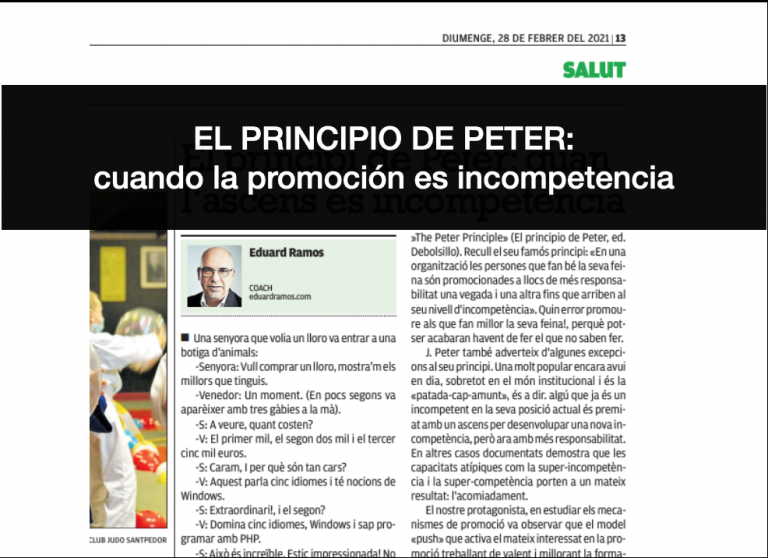The Top 3 Differences Between Executive Coaching and Consulting
It is very important to distinguish the activity related to the coaching that has to do with the consultancy. Especially not to lie to clients when dealing with projects with changed names and different expectations.
The publication I refer to below focuses on the essential differences between these two activities and approaches to assist individuals and companies.
From https://goo.gl/bgGZzP
(Linkedin International Coach Federation)
Over the years, I have come across a lot of potential clients who have been gravely mistaken in thinking that the terms “executive coaching” and “business consulting” are one and the same, or simply put — synonymous to one another. This is not the case, as there are major difference between the two professions. As an Executive Coach and as an experienced management professional who has dealt with management consultants over the years, I am here today to highlight the top 3 key differences between the two so you can get gain a better understanding of what exactly those differences are and what they entail.
- Agenda. Executive Coaches have NO agenda but to help the client get what he or she wants. Other than that? Nada. None whatsoever. Although a coach definitely will have expertise in certain fields, whether that is HR Strategy, Operations Management, Psychology, etc., a coach’s main expertise is the process of coaching itself. On the flip side, business consultants do have an agenda and some possible solutions, and they bring those solutions and agendas to their clients. At the same time, they are experts in specific fields.
- Client is the ultimate expert. Although a coach can and may in certain circumstances, suggest ideas from his or her knowledge base, experiences or right from their intuition; an Executive Coach accepts that the client is the ultimate expert and has the power within him or her to the answers of the challenges the client faces. While on the other side, business consultants promote themselves as the experts in the challenges the clients are facing. However, the problems that the clients are usually facing are not something that business consultants will be able to address at all.
- Tasks. Management consultants help businesses improve their performance and grow by solving problems and finding new and better ways of doing things. While an executive coach will bring about the effective change the client is facing, they achieve this by helping through becoming a trusted advisor who promotes a confidential and safe environment in which the client will explore his or her concerns and issues. The executive coach will identify and focus on developmental issues, growth needs, leadership skills, behavioral traits, and goals at the executive level.
